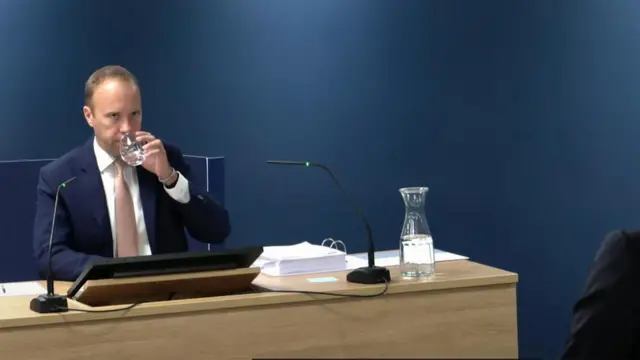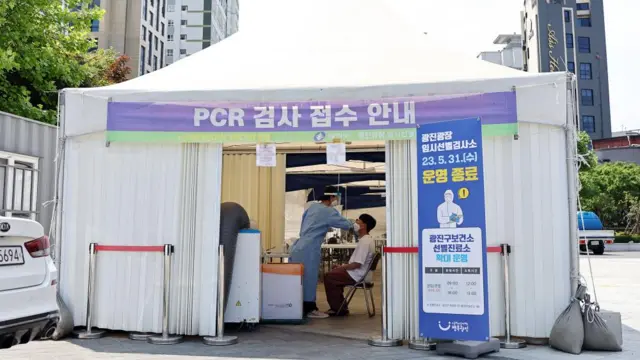Social care system is flawed - Hancockpublished at 12:28 BST 27 June 2023
Matt Hancock says his central point is "the system for how we run adult social care is flawed".
He says there was work ongoing to resolve it, including work on pandemic planning.
"It was in nowhere near good-enough shape," he continues, especially as older people were affected more by Covid when it struck.
He says reform of how to manage social care is underway, but still not completed.






